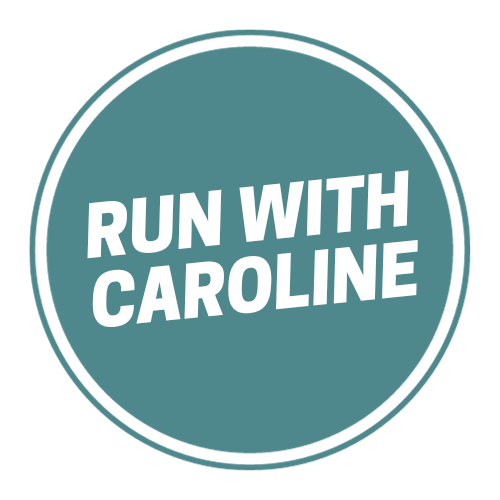You may be wondering: “How long does it take to run a mile?”
Running a mile is a common goal for a lot of beginner runners who first start out on their running journey.
The truth is, how fast you run a mile depends on a lot of factors, including your age, gender, fitness levels and even the weather and running terrain.
The first mile of a run can often feel the hardest.
You may even feel like quitting, but if you push through this initial discomfort, you will reap the rewards!
In this guide we’ll explore:
- How long is a mile?
- How many laps is a mile?
- How long does it take to run a mile?
- How long does it take the average person to run a mile?
- What is the fastest mile time?
- How long does it take to walk a mile?
- Average mile times by age and gender
- 8 tips for running your fastest mile
Ready?
Let’s get going!

How long is a mile?
One mile is equal to 1.6 kilometres, 1,609 metres, 5,280 feet, 63,357 inches and 1,760 yards.
The mile is a British imperial unit and originally came from the Roman unit of distance known as ‘mile passus’ which translates to ‘a thousand paces’.
Interestingly, a mile is about four times around a sports track.
Miles are still in use in countries such as the US, Canada and the UK.
Related: Running a mile a day: Benefits + 9 reasons to do it
How many laps is a mile?
A mile is roughly 1,600 metres so this is four laps around an athletics track.
Each lap is 400 metres.
Related: How to run an 8 minute mile

How long does it take to run a mile?
How fast you run a mile will depend on a number of factors.
The factors that affect running speed are:
- Age
- Gender
- Biomechanics
- Fitness levels
- Weather
- Altitude
- Terrain
Age
The general trend is: the younger the runner, the faster the runner.
There may be exceptions to this rule, but generally this is what the data tells us.
Surprisingly, ageing doesn’t slow your running speed significantly.
However, studies show that once you reach the age of 40, your running speed will start to slow down gradually.
The study found that between the age of 40 and 70, your running speed slows down by about 1% each year.
It added that once runners reach their late 70s, they begin to decline by about 1.5% each year.
Gender
Men are typically faster than women when running a mile.
This is because men have a greater amount of muscle bulk and higher levels of testosterone which helps to keep muscles and bones strong.
In addition, women tend to have less lean muscle mass and shorter legs than men do.
As well as wider hips which makes running less efficient.
Biomechanics
Biomechanics studies human motion during exercise.
It involves analysing movements and coaching them for more effective movement during exercise and sports.
An individual’s running gait, for example, can be filmed and recommendations made to change and improve it.
Your running gait and running form can impact your performance and speed when running a mile.
Poor running form can lead to inefficient movement and wasted energy, which will slow you down over time.
Fitness levels
The longer you have been running and the fitter you are will translate into faster running times.
For example, if you’re an experienced runner with several years of running under your belt, you are more likely to achieve a faster mile pace than someone who has only been running for a few months.
Likewise, if you’re a beginner runner, then it’s unlikely you’ll be able to match the speed of a more experienced runner.
Remember that every runner is different – no matter their running experience or fitness levels.
Weather
The weather can often be a determining factor when running a mile.
Heat and humidity can affect your mile pace.
When you run in the heat, your body has to work harder to divert blood to your skin to help keep your body cool.
Extreme temperatures have been connected with slower race times, especially during longer races.
With this in mind, if you’re wanting to run your fastest mile or your next PB, ensure the weather conditions work for you and not against you!
Altitude
If you’re running at a high altitude, your mile pace will likely be slower than what it would be running at sea level.
When you run at a high altitude, there is less oxygen available for your muscles which can lead to tiredness and fatigue.
Terrain
Running on uneven terrain (trail running) is typically slower than road running.
In addition, running up hills is often linked to slower race times.
When you run on uneven terrain, you often have to navigate over rocky paths which involve twists and turns which make your run time slower.
Related: How to run an 8 minute mile

How long does it take the average person to run a mile?
On average, an amateur runner can expect to run one mile in about 9-10 minutes.
If you’re new to running, you might run one mile in 12-15 minutes.
Elite runners can expect to run a mile in about 4-5 minutes.
Related: How to use Jeff Galloway’s magic mile running test
What is the fastest mile time?
The fastest mile ever ran and world record mile is 3:43:13.
This was set by Hicham El Guerrouj of Morocco in 1999.
The current female world record mile time is 4:12:33.
This was set by Sifan Hassan of the Netherlands in 2019.
Related: Running 2 miles a day: 12 benefits + how to start
How long does it take to walk a mile?
Most people can expect to walk a mile in 15 to 22 minutes.
The average walking pace is between 2 and 4.5 mph.
Related: Walking 3 miles a day: 5 surprising benefits
Average mile times by age and gender
Here are the average mile times (minutes per mile) by age and gender.
This data is based on the run times of 10,000 5k runners in the US in 2010.
| Age | Men | Women |
| 16-19 | 9:34 | 12:09 |
| 20-24 | 9:30 | 11:44 |
| 25-29 | 10:03 | 11:42 |
| 30-34 | 10:09 | 12:29 |
| 35-39 | 10:53 | 12:03 |
| 40-44 | 10:28 | 12:24 |
| 45-49 | 10:43 | 12:41 |
| 50-54 | 11:08 | 13:20 |
| 55-59 | 12:08 | 14:37 |
| 60-64 | 13:05 | 14:47 |
| 65-99 | 13:52 | 16:12 |
Related: Walking one hour a day: Benefits + expected results

8 tips for running your fastest mile
If you’re hoping to improve your mile time and run your fastest mile, then follow these simple tips.
#1 Build up slowly
In order to run a faster mile, you need to have developed a good base level of fitness.
This means working on your endurance and stamina first before focusing on speed.
If you’re new to running, start with the Couch to 5k plan before progressing onto a 5k or 10k training plan.
The key is to build your endurance and stamina slowly, and avoid sudden jumps in your training.
#2 Speed train
Once you have built your endurance and stamina, it’s now time to focus on your speed.
Speed training like interval training, strides and tempo running will go a long way to help you run your fastest mile.
These types of workouts should be included in your training plan alongside easy runs and long runs, as well as the all important rest days.
Aim to include at least two speed training sessions in your training routine each week.
#3 Run up hills
Running up hills has many benefits and has been shown to improve your form, power and strength as a runner.
Aim to include 1 to 2 hill sprint sessions in your training routine each week.
Hill sprinting can be quite demanding physically.
So be sure to progress slowly and always remember to warm up before a session.
#4 Focus on your running form
Your running form is extremely important when it comes to running in the most efficient way possible.
Running form looks at everything from your posture and cadence to your arm swing and foot strike.
Check out my guide on proper running form for more tips and advice.
#5 Switch up your pace
If you’re only used to long, slow runs during your training, then now is the time to switch up your training routine.
A well-rounded training plan should include easy runs, long runs as well as workouts like speed training, strength training and cross training.
Check out my intermediate 5k training plan for more tips on including these workouts in your training routine.
#6 Prioritise rest and recovery
Rest days are integral to any training plan.
Don’t make the mistake of powering through your rest days as you could risk overtraining, burnout and injury.
#7 Strength train
Strength training has a whole host of benefits for runners looking to become stronger and faster on the race track.
It can take many forms of exercise, such as bodyweight exercises or resistance training like weight training.
If you’re new to strength training, start with some simple bodyweight exercises then progress from them.
Check out my 30 day strength training plan for runners for more advice and tips.
#8 Listen to your body
Running can be gruelling, especially if you’re training for longer distances like a half marathon or marathon.
Listen to what your body is telling you during periods of training.
If you feel tired, fatigued or have a niggling injury, then take some time out and prioritise rest and recovery.
Pushing yourself too hard can lead to burnout and injury so tune into your body’s warning signs.
Related: Should you work out on your period? 6 best exercises
- 5 things I wish I’d known before returning to running - March 3, 2024
- Running 20 minutes a day: Benefits + how to start - January 27, 2024
- How to run your first 2 hour half marathon - January 16, 2024
